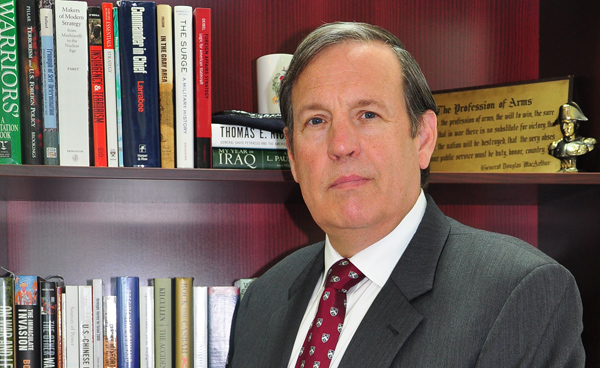Former Dean of the National Defense College
National power depends upon many dynamics. History shows that the greatest crises have often been shaped as much by personal leadership as by national resources or military might. The current war in Ukraine provides a clear example of the impact of strategic leadership during conflict. President Putin and President Zelenskyy have dominated the war between their nations, but both demonstrate very different leadership styles.
After over two decades in power, President Putin employs a highly centralised leadership approach. He exercises near total power within Russia and has been prominent on the world stage for decades. He is wise, yet he may have underestimated his unconventional opponent’s leadership ability and resolve. President Zelenskyy only recently came to power, with no political experience, but he rapidly developed a persona as a servant leader who will never flee or surrender, and he demonstrates an enviable capacity to inspire his people to continue the fight.
In wealth and power, Putin already had global impact, so his decision to invade Ukraine is controversial. As president, he had previously confronted Georgia in 2008 and helped President Bashar al-Assad during the Syrian Civil War. Then, in 2014 he annexed Crimea from Ukraine, and other nations did very little in response. Perhaps these advances led Putin to believe in his nation’s infallibility.
History gives many examples of leaders who came to believe that their causes were always right; many of them would not countenance contrary views. President Putin has portrayed Ukraine as an indissoluble element of greater Russia; Ukraine, he maintains, is separate today only because of malign outside influences. So far, most Russians apparently believe Putin, but their faith in him may decay as the conflict continues.
If President Putin were thinking strategically, he might have gambled differently. By his actions, he has inadvertently strengthened NATO and the European Union, and has provoked responses by the United States and other nations; China stands friendly to Russia but uninvolved for now. President Putin’s actions have also stimulated some resistance in Russia, which may grow if Russian casualties continue to increase.
History has occasionally witnessed leaders who appear out of nowhere, but who are able to rally their people against impossible odds. As Margaret MacMillan recently wrote, President Zelenskyy is an even more improbable leader than Winston Churchill was in Britain in 1940. When Zelenskyy was elected in 2018, the headlines were all about the television comic with no political experience.
When President Putin invaded Ukraine, Zelenskyy’s national approval ratings were poor, but his vision, passion, communications skills, and courage have shown him to be a highly effective strategic leader.
President Zelenskyy knows how to connect with people in Ukraine and in other nations around the world. He leads by example, refusing to leave Ukraine and sharing wartime risks daily, which strengthens Ukrainian power.
As Sheikh Zayed demonstrated, a leader’s character can be far more consequential than military power. What happens next in Ukraine will depend on many things, from the resolve of the Ukrainian people to the number and type of weapons each side will acquire. But it will also depend greatly on the leadership of the key players. Regardless of the war’s outcome, the leadership qualities of Presidents Putin and Zelenskyy serve as powerful lessons for all strategists.


No Comments